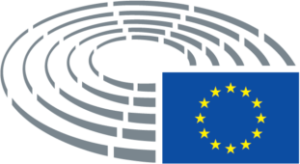I read a lot of alarmist comments in the international press about the political situation in Germany after the federal elections on 26 September. Certainly, the end of the Merkel era is marked by a further fragmentation of the German political landscape.
But we should remain calm: despite the disappointing result for my Christian Democrat political family – which is understandable after sixteen years in power – I actually find several reasons to be pleased with the outcome of the German elections.
Firstly, the high turnout (76.6%) shows that German voters have a great deal of confidence in their institutions and in parliamentary democracy in general, which are essential conditions for the legitimacy and stability of the future government.
Secondly, and this is probably the most pleasing point, Germans voted massively for democratic, pro-European parties. With 10.35% and 4.89% of the vote respectively, the far-right and far-left parties, Alternative für Deutschland and die Linke, are now figurants on a political scene dominated by moderate parties.
This result is probably explained by the Coronavirus pandemic: German voters understood that in such a crisis, only responsible parties could provide concrete answers and manage the situation effectively.
It also shows that when the political offer is rich and varied in the centre of the political spectrum, extremes and populists do not succeed in thriving.
Let us now turn to the much less cheerful news.
The next government coalition is likely to be a ‘traffic light’ one, consisting of the Social Democrats, the Liberals and the Greens.
The formation of a left-wing government will, in my view, have two important consequences for the European Union.
Firstly, while the recent episodes in Afghanistan have demonstrated the urgency of strengthening European defence, we must expect new blockages in this area, as the German left is not at all ready for the progress that my political family has long been calling for.
Furthermore, in a European Union with growing divisions between East and West, a left-wing coalition in power in Germany will tend to add fuel to the fire and thus accentuate the divisions between Member States.
Where my political family has always been concerned with building bridges and maintaining dialogue between the different regions of Europe, a left-wing coalition with a very strong ideological position will, on the contrary, contribute to a hardening of positions on both sides. This is a source of great concern to me.
My column in l’Opinion




